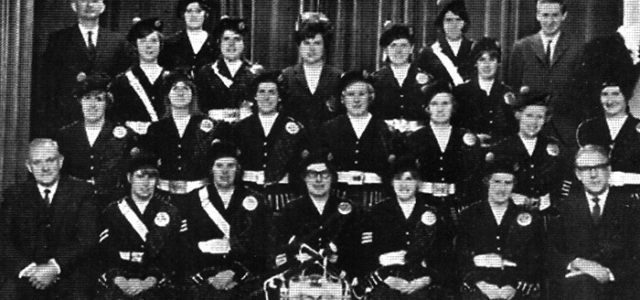
By Jeannie Campbell
The City of Christchurch Ladies Band in New Zealand (pictured above in 1969) was formed in 1941 by Mr Joe Patterson from Tapanui in the South Island. He had been a piper from an early age and was taught by Alex Duncan and Albert MacIntyre.
The band had to compete against the men but were regular winners of the trophy presented for the best Ladies’ band.
The Wick Girls’ Band was founded in 1942 by Mr and Mrs Christie, who were immortalised in the 2/4 march P/M Jim Christie of Wick [by fiddler Addie Harper] and the 6/8 march Mrs Lily Christie by P/M Donald Shaw Ramsay.
A lot of the local children would come to the house to hear Mr Christie play so he began to teach, starting with three girls.
[wds id=”2″]
Numbers increased rapidly and within a few years he was teaching every night of the week. The band was run without a committee by Mr and Mrs Christie on strictly amateur lines, Mr Christie teaching both piping and drumming without charge, while his wife made all the uniform doublets, kilts, plaids, jabots and stockings.
Funds to cover other uniform items and travelling were raised by local concerts and dances. The band played in Edinburgh in 1947, Milngavie in 1948 and London in the summer of 1949 when they did a number of engagements.
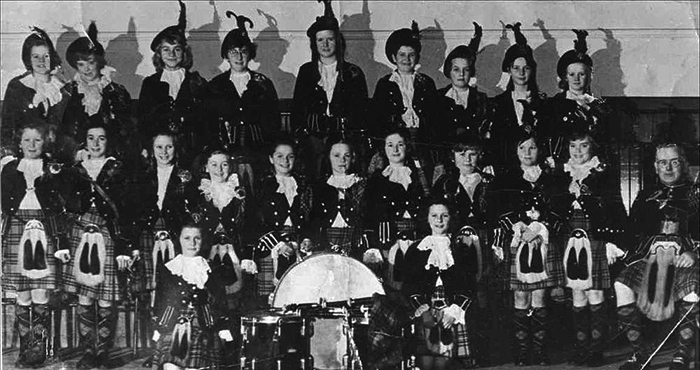
In the following years they played in Orkney, Brighton, Wiltshire, Inverness, Aberdeen, Dunfermline, Edinburgh and Glasgow. P/M William Taylor composed a slow march in honour of the girls, named The Wick Girls Pipe Band.
An annual contest for members of the band was held from 1957 to 1973, with the number of entries varying between 40 and 70 over the years. At the 1970 competition it was noted that the band included two Pakistani girls. P/M Christie retired in 1972 after running the band for 30 years.
Rose Fletcher was born in 1916 at Littlemoss near Ashton-Under-Lyne, Lancashire. At the age of seven she started piano and Highland dancing lessons.
The piper for the dancing displays was Alexander Brown from Aberdeen and when Rose was 15 she began to take chanter lessons from him. In an effort to dissuade her interest in piping her family bought her an accordion and paid for her to have lessons.
Unknown to the family Rose played truant from the accordion lessons and went instead to Mr Brown for more chanter lessons.
Rose’s boyfriend Harry Mellor (later her husband) sold his motorbike and bought Rose a half sized set of full ivory mounted Henderson pipes.
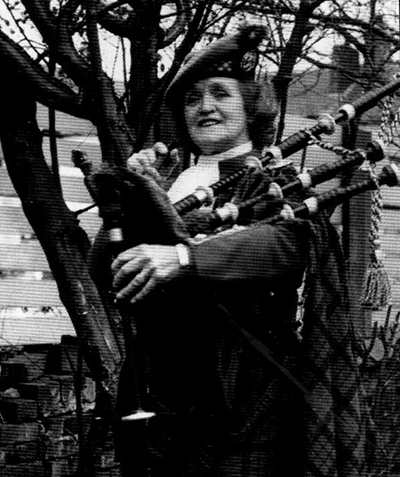
In 1935 Rose formed The First Ashton Scottish, which consisted of one piper (Rose) a drummer and six dancers. In 1939 on holiday in Falkirk she heard the local band Falkirk and District and received some tuition from P/M Alan Rankin.
She made her first visit to Dunoon for the Cowal Games during the same holiday. During the war years Rose taught a WAAF pipe band at Ringway, now Manchester, airport.
The girls were all employed packing parachutes and before the war ended they were able to turn out as a pipe band.
Rose and Harry married in 1940 and had four children, two pipers and two drummers, three girls and a boy. Before Mr Brown died in 1945 he gave Rose his own set of Henderson pipes.
In 1947 the First Ashton Scottish became the Rose Fletcher Pipe Band. In 1960 the band became the Rose Fletcher Ladies’ Pipe Band and the one male member, Owen Nash, who married Rose’s daughter Pauline, was made redundant. The band won the Ladies’ World Championship six times.
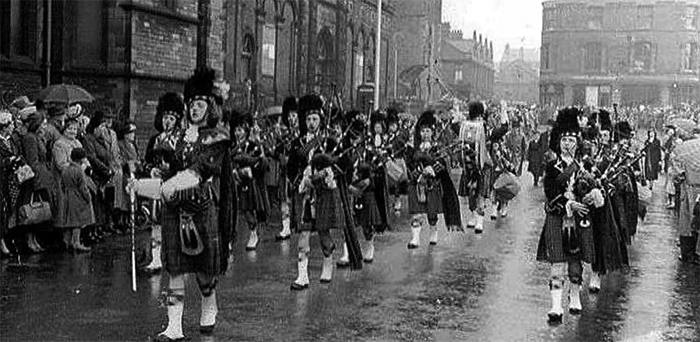
In the late 1940s Rose invited College of Piping Principal Seumas MacNeill to spend a few days giving tuition to her band.
He said afterwards that he had expected to find a lot of fingers in deep trouble but to his surprise the standard of playing was remarkably good.
Rose had obviously decided from the very beginning that it was not enough to look good on parade – the pipers and drummers had to play as well as they possibly could.
Every year Rose would send a group of girls to the College summer schools and whenever the College ran a weekend course they could be sure of a car load from Lancashire.
When separate competitions for ladies’ bands were discontinued the Rose Fletcher Ladies competed in the ordinary grades.
They won the Grade 4 competition at Cowal in 1969 and in the 1970s competed in Grade 3.
Rose’s eldest daughter Pauline was an excellent piper and won many juvenile prizes in England and Scotland.
Another of Rose’s girls, Annie Thacker, now Mrs Annie Grant, settled in Dunoon and became P/M of Dunoon Grammar School Pipe Band and the schools’ piping instructor for the area.
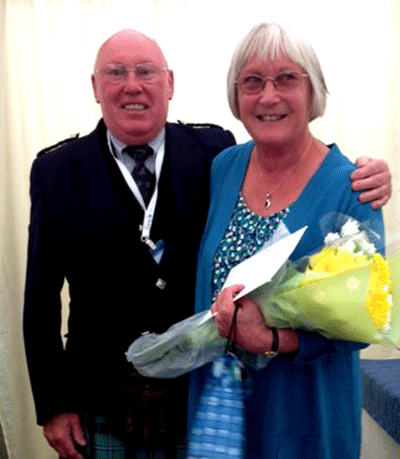
Annie has tutored the advanced course of the RSPBA and was the first female judge on the RSPBA panel.
- Read earlier parts of this history beginning here.
[wds id=”8″]







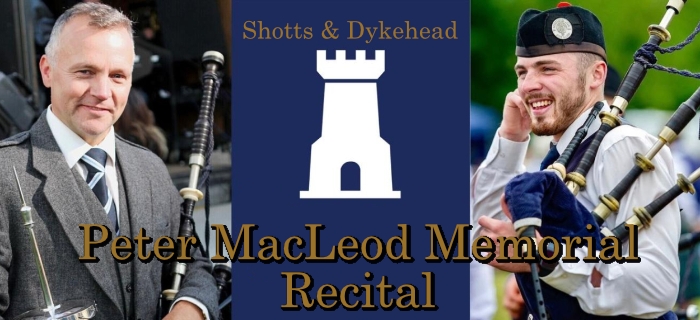









Gilbert – Thanks for the correction, it’s such a long time ago. Tempus Fugit and memories fade. Slainte, David.
If I’m not mistaken, The grade 4 championship at Cowal in 1969, was won by “The City of Leeds Pipe Band” under the Pipe-Majorship of Jeff Nixon.
David – I think City of Leeds won it in 1968 with Lord Edwards Own [Eire] winning the drumming. Rose Fletcher Ladies won both band and drumming prizes in 1969.